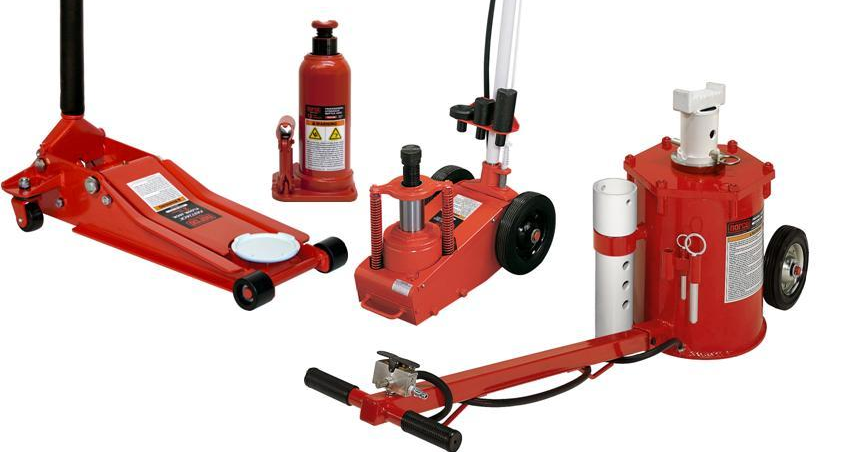Hydraulic Floor Jack Prevenative Maintenance
Tips and tricks on how to ensure your floor jacks will keep on working

Storage:When you plan on not using a jack over an extended period of time, the first thing that you need to do is make sure that you have retracted the piston and the pump. Doing so puts less strain on the unit's system and ensures a higher possibility of the jack continuing to work correctly. Finally when storing your floor jack always make sure that it is on its wheels and not tipped over on its side. Tipping a jack over on its side or front or rear leads to an increased risk of potential leaks.
Cleanliness: A dirty floor jack will fail and break down, no if's, ands, or buts. Dirt is a common reason of why a jack might fail. If you're using a jack in an outdoor environment where snow, sand, water, grit, or other foreign matter can accumulate on the jack and if not cleaned off quickly enough can work its way into the system and contaminate the system.
Inspection: Part of your maintenance should include regular inspections. Look at the area around where the jack was stored to check for any leakage of fluid and go over the housing to see if there’s any cracking or rust;as well as inspecting the piston rod for scoring or other damage. You should also check to see if there’s too much wear in any region that could become an issue. Keep an eye out for any foreign objects (i.e. bits of metal, dirt, rocks, etc.) that may cause damage to the unit if not removed before any usage.
Cleaning: After you’ve used the hydraulic jack, clean it before you store it. If you wipe down the metal it will attract less dust.Use a mild soap solution to clean the exterior of the jack. DO NOT clean the moving hydraulic components. Make sure to lubricate periodically to help prevent premature wearing of parts. A general purpose grease should be be applied to caster wheels, front axle, elevator arm, handle base pivot bolts, release mechanism and all other bearing surfaces. Check the seals after use to check for possible oil leakage and replace the seals immediately if you notice any. Don’t use the jack again until you’ve done so.
Bleeding the system: You’ll need to change the oil in the hydraulic jack periodically. After you’ve completed that as part of your maintenance, always remember to bleed the air from the system. It’s something you should also do if the movement of the jack appears erratic rather than smooth. All you have to do is twist the pump rod in a counter clockwise direction and then pump the jack several times. Once done, twist the rod back in a clockwise direction and pump up the hydraulic jack as far as it will go before releasing it.
Check the oil: Check the oil level, but only add more when the rod doesn’t move easily. Be sure that you add oil in the correct port, usually located on the side of the power unit. It’s an easy mistake to make and one that can leave you with a jack that doesn’t work properly.Ensure that you fill all the way to the fill line but don’t go beyond that. Only use hydraulic oil that is specified by the manufacture, the use of hydraulic brake fluid, detergent motor oil, or transmission oil could damage the seals and result in jack failure.

